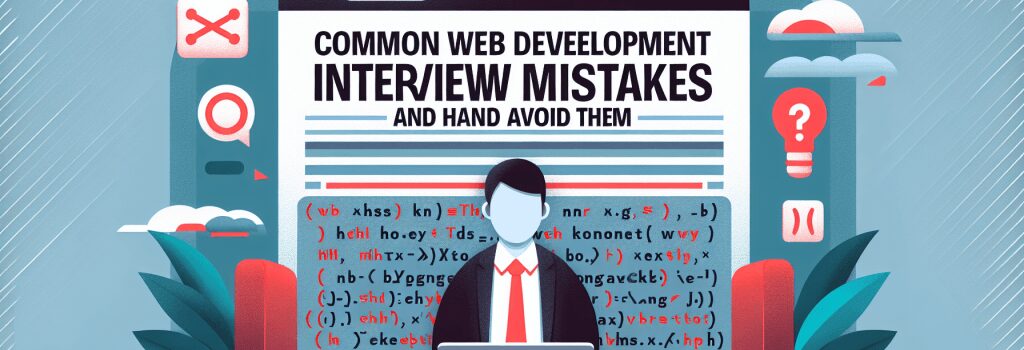Common Web Development Interview Mistakes and How to Avoid Them

Introduction
Web development interviews can be daunting, especially if you’re new to the field. Whether it’s for frontend, backend, or full-stack positions, knowing HTML, PHP, CSS, JavaScript, and CMS platforms like WordPress is just the beginning. Beyond technical skills, there are common pitfalls that many candidates fall into during interviews. This article aims to highlight these mistakes and offer practical advice on how to avoid them, setting you up for success in your web development career.
Not Researching the Company
Understand the Company’s Needs
Before walking into any interview, take the time to understand the company you’re applying to. What projects are they working on? What technologies do they use? A candidate who shows they’ve done their homework stands out. It demonstrates your genuine interest in the company and shows that you’re proactive.
Tailor Your Responses
Use your research to tailor your responses to the company’s context. For example, if the company primarily uses WordPress for their projects, emphasize your experience and successes with this platform.
Underestimating Soft Skills
Communication Is Key
Technical skills are crucial, but the ability to communicate effectively is equally important. Many web developers underestimate the importance of demonstrating their soft skills. Be prepared to give examples of how you’ve worked in a team, resolved conflicts, or managed projects.
Ask Thoughtful Questions
Asking questions not only shows your interest but also your critical thinking abilities. Prepare thoughtful questions that reflect your understanding of the company and the challenges you might face in the role.
Insufficient Preparation for Technical Assessments
Brush Up on Fundamentals
A common mistake is neglecting to refresh your knowledge on basic concepts. Regardless of your experience level, reviewing the fundamentals of HTML, CSS, PHP, JavaScript, and WordPress can help you respond more confidently to technical questions.
Practice Coding Challenges
Many interviews include live coding challenges or take-home assignments. Practice these under timed conditions to improve your speed and accuracy. Familiarize yourself with common algorithms and problem-solving techniques relevant to web development.
Ignoring the Importance of a Portfolio
Showcase Relevant Projects
Your portfolio is a tangible way to demonstrate your skills and style. Ensure that it is up-to-date with projects that closely align with the job you’re applying for. If you’re applying to a company that uses WordPress extensively, highlight your most impactful WordPress projects.
Highlight Your Contributions
Be ready to discuss your specific contributions to each project in your portfolio. What challenges did you face, and how did you overcome them? How did your work benefit the project or the team? This not only demonstrates your technical skills but also your problem-solving abilities and teamwork.
Failing to Follow Up
The Power of a Thank-You Note
A simple thank-you email can set you apart from other candidates. It’s an opportunity to reiterate your interest in the position and express your appreciation for the interviewer’s time. Additionally, you can briefly mention any points you wish you had emphasized more during the interview.
Conclusion
Succeeding in a web development interview goes beyond having the right technical skills. Avoiding common mistakes such as failing to research the company, underestimating the importance of soft skills, not preparing adequately for technical assessments, ignoring your portfolio’s impact, and not following up can significantly increase your chances of landing your dream job. Remember, every interview is an opportunity to learn and grow, bringing you one step closer to your goal of becoming a successful web developer.


